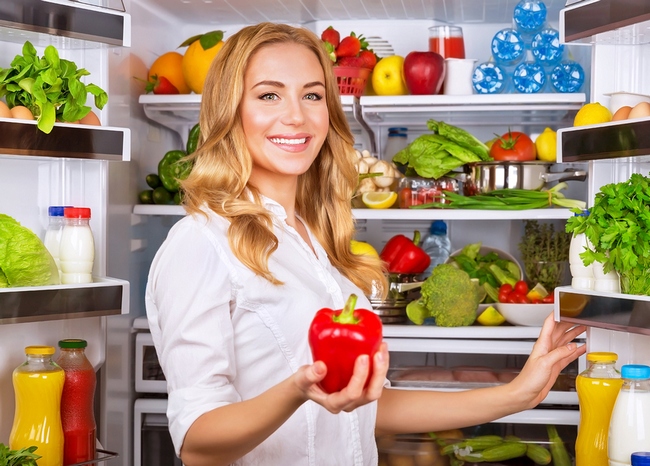- Make It Yourself Lavender Heart-Shaped Bath Bombs!
- 20 Things You Never Knew About “Down There”
- 12 Best Foods For Those Suffering From Arthritis Pain
- 12 Personal Hygiene Mistakes Almost Everyone Makes (Mom Never Told You About #4!)
- 15 Medicinal Plants And Herbs From The Cherokee People
- 12 Mind-Blowing Benefits Of Drinking Coconut Water During Pregnancy
- 12 Outstanding Winter Foods That Won’t Fatten You Up Like A Christmas Turkey
How To Store Your Expensive Fruits And Veggies So You Eat More And Waste Less

Photo credit: bigstock.com
You are probably doing your best to buy as many organic fruits and veggies as you can so you and your family will have less exposure to dangerous pesticides. As you know, organic produce is quite expensive, and it can be really disheartening to find that your $18 dollar bunch of organic grapes that you thought your family would devour in a couple days has gone bad.
Does it seem that your expensive produce is always going bad before you really get a chance to use it? Does the thought of having to go to the store every few days to get small amounts of produce seem kind of depressing? Who has time for that?!
Perhaps all you really need is to understand that some fruits and veggies produce gas, which causes them, and the produce near them, to rot faster.
Once you know which foods are prone to creating gas, you can store your produce properly so that it stays fresher longer.
Did you mother ever tell you that if you wanted pears or bananas to ripen more quickly, that you should put them into a paper bag? This is because these fruits emit ethylene gas. The gas causes the fruit to ripen more quickly.
That means that the old adage, “one bad apple spoils the whole bunch,” is really true!
Keep reading and find out which foods you should store where so that you can make the most of your expensive, organic produce.
1. Foods You Should Refrigerate
First, never wash your produce before you store it. Wait and wash it just before you are going to eat it, cook it, or cut it up. This will greatly eliminate the possibility of mold claiming your food first. The following foods should always be stored in the fridge:
- Zucchini
- Lima beans
- Yellow squash
- Leafy green veggies
- Summer squash
- Leeks
- Sprouts
- Mushrooms
- Spinach
- Okra
- Artichokes
- Beets
- Honeydew melons
- Brussels sprouts
- Green beans
- Cabbage
- Grapes
- Cantaloupe
- Cherries
- Celery
The following foods should be stored in the fridge, but only after they are completely ripe. If you put them in the fridge before this time, they will never fully ripen.
- Kiwifruit
- Avocados
- Nectarines
- Plums
- Peaches
- Pears
- Plums
Herbs and asparagus should be stored in the fridge in a glass of water.
2. Paper Bags
You can store all kinds of mushrooms and okra in a paper bag as it prevents light from reaching them.
Continue to Page 2

































Gabe
Mar 24, 2016 at 9:15 am
Mostly I store my fruits and veggies in my tummy. 🙂
Marvin Zinn
Mar 22, 2018 at 7:24 am
I agree, but when I could get pears the owners did not want from the trees, I added honey, lemon juice, and cinnamon and canned more than 50 quarts a year until the electric and telephone companies paid the owners to cut down the trees.